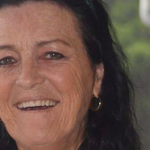Greens Push to Legalise Cannabis

The Greens have highlight the fact that drug prohibition has proven to be a “dismal failure” and are pushing to legalise marijuana across Australia.
It is the first party with seats in parliament to call for the legalisation of recreational cannabis use across the nation.
Greens leader Richard Di Natale has called upon the government to adopt the policy and, if it doesn’t feel comfortable with passing enabling legislation of its own accord, to “take it to the Australian people” in the form of a plebiscite.
The proposal
Laws have been passed which decriminalise the prescription and use of cannabis for medicinal purposes in certain limited circumstances.
The Greens’ plan is to make cannabis available through a government agency which has sole responsibility for distributing the product.
To facilitate this, Mr Di Natale is calling for the establishment of an Australian Cannabis Agency which would consolidate state and territory drug laws. The new Agency would issue licenses for production and sale, while monitoring retailers. It would be responsible for collecting millions of dollars in a tobacco-style tax from consumers, which would then be used for drug treatment and education programs.
Cannabis products would be sold in plain packaging, again similar to the sale of tobacco, and those who seek to obtain a licence to sell the product would need to ensure staff undertake responsible service of drugs training.
All advertising of cannabis would be banned, and “big cannabis” avoided by promoting small scale production, according to the policy.
It’s a health issue, not a criminal one
Mr Di Natale has adopted the rhetoric of drug reform experts, stating that drug use should be treated as a health issue rather than a criminal offence.
“The Greens see drug use as a health issue, not a criminal issue. Our plan to create a legal market for cannabis production and sale will reduce the risks, bust the business model of criminal dealers and syndicates and protect young people from unfair criminal prosecutions”, he told the media.
Alex Wodak, president of the Australian Drug Law Reform Foundation, welcomed the announcement, pointing out that “Banning cannabis hasn’t reduced its use or availability, yet it has distracted police from following up more serious crimes, harmed a lot of young people and helped make some criminals rich@.
Government position
However, Health Minister Greg Hunt has criticised the proposal, making the repeatedly disproven claim that cannabis is a “gateway drug” to other “harder drugs”.
“The risk of graduating to ice or to heroin from extended marijuana use is real and documented,” Mr Hunt claimed. “We do not believe it is safe, responsible or something which should be allowed.”
Di Natale points out that the “gateway drug theory” is a “falsehood” which has been disproven time and again.
Meanwhile, Opposition Leader Bill Shorten has accused the Greens of generating “political clickbait”. He says that that although his party wants to make cannabis widely available to terminally ill patients, it has no plans to legalise it for recreational use.
Peak health bodies
The Australian Medical Association (AMA) has also expressed concerns about the Greens’ plan.
AMA Vice President Tony Bartone says he holds “significant reservations” because the drug may affect the developing brains of those above aged between 18 and 24.
However, he agreed with Mr Di Natale that drug use should be treated as a health issue rather than a criminal law one – which merely serves to clog the courts, line the pockets of producers and suppliers, and make criminal lawyers richer.
“The courts are clogged with people [on drugs charges],” he stated. “We see recreational use of cannabis as a health issue not a criminal issue.”
Alcohol and Drug Foundation Policy Manager Geoff Munro expressed some concerns that vulnerable Australians might turn to using cannabis. However, he added that:
“… there may be some positive effect. It could reduce stigma around cannabis use and make it easier for people who are dependent to seek treatment.”
Negative health impact is minimal
The world’s most comprehensive study into the health effects of cannabis was released last year by the National Academies of Sciences, Engineering and Medicine.
After examining more than 10,000 scientific abstracts dating back to 1999, the extensive 395-page report unearthed more than 100 conclusions about the health effects of recreational and therapeutic cannabis use.
The study concluded that the potential adverse health effects of cannabis are “minimal” and that there its criminalisation is inadequately justified.
Economic benefits
The Parliamentary Budget Office for Independent Senator David Leyonhjelm found the budget would be boosted by $259 million a year if Australia legalised cannabis.
It is important to note that this figure accounted only for the expected reduction in law enforcement costs and an increase in GST takings, not the excise placed upon the sale of the drug.
Economic analysis of the total impact of cannabis legalisation has calculated the net social benefit of legalisation at a whopping $727.5 million per year.
Overseas jurisdictions have seen economic benefits through legalisation – the state of Colorado alone earned more than $260 million in tax revenue in 2016, after it sold more than $1.7 billion worth of cannabis.
Internationally, nine of the United States have legalised cannabis. Spain and Uruguay have also legalised the drug, and have seen enormous social and economic benefits. Canada intends to legalise cannabis this year, while the New Zealand Prime Minister has agreed to conduct a referendum on the issue.







